Swooning for Providence
plus pitch calls and writing opportunities
You could say we met through work.
The first time I was in Providence, Rhode Island, I was on a guidebook writing assignment. Two friends from Brooklyn and one from D.C. joined me for a week in the Hope neighborhood, where we rented the top floor of a purple Victorian on a wide, leafy street. The staircase to our apartment creaked and curved, then opened up into a big kitchen with knotty wood floors and a living space filled with mismatched furniture you could really sink into, surrounded by piles of magazines and bookcases filled with fat spines.
The night we all arrived, we poured ourselves wine and settled into hours of catching up, each of us sunk into an overstuffed couch but also on the edge of our seats for the thrill of a new place and each other’s presence. The next day, while my friends turned the kitchen into a coworking space, I closed the creaky door behind me and walked downhill towards downtown Providence for a day of exploring the city.
It all felt a little too perfect. So perhaps it was too easy to love Providence because I was there with people I love doing work I love. Because it was late spring, and the gardens and trees were shamelessly spilling with blooms.
Perhaps it was like meeting someone on the dance floor in that brief period of adulthood that’s saturated in just the right amount of freedom, on a night when you’re a little tipsy and your favorite song just came on—and then you lock eyes with someone who smiles. Of course it feels like love!
Or, perhaps it’s like when a brilliant writer pens a poem just for you.
My first stop on my first solo outing was the Providence Athenaeum, a 200-year-old library on the edge of the Brown University campus. In the cozy visitors’ room, tucked into the back of the building, I learned this is where Sarah Helen Whitman, a famous Rhode Island poet and critic, spent decades cultivating a community of fellow writers and thinkers who would gather here to write and talk about their work. In 1848, Edgar Allan Poe came to the Athenaeum with the intent of courting Whitman, with whom he’d been corresponding through poetry. The two went on to spend much time together among the stacks, sharing in their love of language and whispering over drafts of their work. Poe proposed to Whitman in a cemetery (of course he did), and despite warnings about his volatility from friends and family, they were engaged. The day before the wedding, Poe and Whitman were sitting in the alcove of the Athenaeum together when someone slipped Whitman a note. It said that Poe was still drinking—was drunk that very morning—after promising her sobriety. Whitman ran home and pressed her face into an ether-soaked handkerchief, slipping into unconsciousness and far from the pain of that day. The wedding was off, and Poe died within the year.
Despite being the site of a sad love story, the Athenaeum is the kind of place that lights me up. On this spring afternoon, the skylight drenched the mezzanine, and the crowded rows of books were cut with beams of dusty sunlight; I felt like I could spend the rest of my trip just sitting at various desks, enjoying story after story as the light turned softer and the hours passed. (But actually, those desks at the end of the rows are for members only, who pay about $15/month for this deliciously quiet study space. Take me, Providence!)
Like most libraries and carefully curated bookshops, the Athenaeum is the kind of place that reminds me of something I sometimes doubt when I’m staring at a blank screen or checking my email again and again, hoping for responses from editors or publications where I’ve submitted work: There are so many stories to be told and endless ways to tell them. The stacks are stuffed with names, not just the famous Poe and Whitman, but hundreds or even thousands of names I’ve never heard of—writers who spent months or years or decades figuring out what they wanted to say and then working, doubting, searching, and editing until it was just right.
(As I flip back through those pictures today—a day in which the U.S. Department of Education has suddenly been gutted and a student protester who peacefully organized his classmates against genocide has been arrested and threatened with deportation—I try to remind myself that writers are documenting everything, thinking hard about everything, trying to speak truth to power, always.)
After a few hours with the books, my friends met me for lunch at Plant City, a compound of plant-based restaurants, cafes, and a market on the river, where we sat outside and enjoyed vegan breakfast tacos.
“You are lit up!” one of them said. And I told them that maybe Jacob, Fiona, and I would move here. Right away, it just felt like a place I could call home. I was living in Portland, Oregon at the time, but we were planning a big move back east to be closer to my family in Connecticut—but why not here? I couldn’t stop thinking about the possibilities.
The rest of the trip was filled with delicious food from menus that detailed sustainability efforts and relationships with local fishermen; bars with the casual vibe of a go-to dive but with the artful cocktails you might expect with a reservation; and long walks looking up at so much vibrant street art and historic architecture. I spent hours walking around downtown, along the river, and weaving into adjoining neighborhoods of brick and cobblestone and history I was only just starting to grasp through the various markers and placards placed on buildings and sidewalks and vestibules.
Nearly one year later, my family and I are living in Connecticut, not Rhode Island, but Jacob and I just spent a weekend in Providence for our anniversary. He was eager to see this city I’d been gushing about, and after five minutes of admiring the stately brick architecture and intricate stonework surrounding our downtown hotel, he was also in love. Holding my hand, he asked me in all earnestness, “Is this place real?”
We spent hours roaming through the various collections at the RISD Museum. I was delighted by the wallpaper exhibit, which showcased historic prints and the delicate process of creating early wallpapers with massive, hand-carved stamps. When I asked Jacob to find my favorite among a wall of a dozen gorgeous patterns, he picked it out right away. (To know a beloved’s taste in wallpaper is true love, as they say.)
And so, both of my visits to Providence have been primed for love—love for my friends, my husband, love for the feeling of exploring a new city and getting lost for a day and being surrounded by the possibilities of books and art.
As a travel writer, it’s important to dig a little deeper than that initial swoon, of course. But I think it’s also ok to let our hearts swim in the fuzzy feeling we get for a new place—to sink into the poetry and the love letters before we learn of the broken promise. I have such a hard time feeling any kind of love for this country I call home lately, but traveling and exploring a new city reminds me there are always many stories about a place being told at once. I know there is a more complicated side to Providence, and living there wouldn’t be one perfect spring day after another. But for now, I’m still crushing hard.
So here are some more photos from my favorite spots in Providence. Have you been?
The Providence Athenaeum
RISD Museum
Plan to spend a few hours here. It’s free on Sundays!
Gift Horse
Get here when they open at 4 for oyster happy hour. They fill up fast. Their gin and kale cocktail is one of the best things I’ve ever sipped on, I swear.
The Eddy
I spent an early evening hour of my first trip writing and sipping a cocktail at this very cozy bar and went back this weekend because I love it so much. It’s right around the corner from Gift Horse.
The Graduate Hotel
Loved the location and all the saturated colors of the interior. Previously called The Biltmore, it’s allegedly very haunted. Also, Poindexter Coffee downstairs is a great place to work.
Pitch Calls, Events, and Education
(OK, I said I wasn’t going to include pitch calls in this newsletter, but I was excited about these ones and thought you might be, too. Do you want more of this? If so, let me know by replying to this email!)
The Verge is looking for pitches for a special series about “small businesses and creators who reinvent and repurpose existing objects and technologies into something new. More accessible. More entertaining. Beautiful. Strange.” Rate is $1/word.
Narratively is open to personal essay pitches about a moment or a particular period of time. They’re accepting pitches and full submissions. Rate is $300.
Memoir Land is partnering with Literary Liberation and accepting submissions of first-person narrative essays that “explore writing as a transformative and liberatory practice.”
Tickets to The Power of Narrative Conference at Boston University are almost sold out! | March 28 + 29
I just signed up for The Open Notebook’s free course on How to Own a Science Beat, which is self-paced through email with assignments following each lesson that will get you to dig into a particular beat, find sources, and identify publications to pitch. They have a bunch of these free courses, and they all sound great.
Poynter recently announced this new workshop on breaking into book writing for nonfiction writers. It takes place in St. Petersberg; it’s a bit pricy at $2,000, but sounds great. | June 10-12
If you’re in Seattle, Portland, or Brooklyn this month, don’t miss Emma Pattee’s book launch events for Tilt! It’s a thrilling, thought-provoking read, and you should also check out our Q&A for some really interesting insight on climate journalism and how the idea for this novel came to be.
For upcoming deadlines for fellowships and grants, don’t forget to check in on The Big List!
In the Weeds
Parents (and everyone, really), we all know the feeling of being needed when our attention is flitting to other things. This essay by Randle Browning in The Rumpus pierces through that longing.
I took up embroidery during a long string of sick days. I was desperate for something to occupy my mind while I watched over my daughter, who needed my constant presence but not always my input. I found that, when I sewed, it brought the creative act down from my mind and into my hands for her to see. She needed me less, or at least she demanded less. I wondered if she could accept the loss of that attention because she could see where it went—not into the ether or to some center behind my eyes, as when I took up a book or journal but out to my fingertips, where she could watch the results take form. — Randle Browning, Parallel Practice: How to Break a Sentence
That’s all for today! I’ll be back in your inbox with a Q&A on Friday.
Did you enjoy this issue? It would mean a lot if you clicked that heart and helped other writers discover Wild Writing.
Stay inspired,
Britany





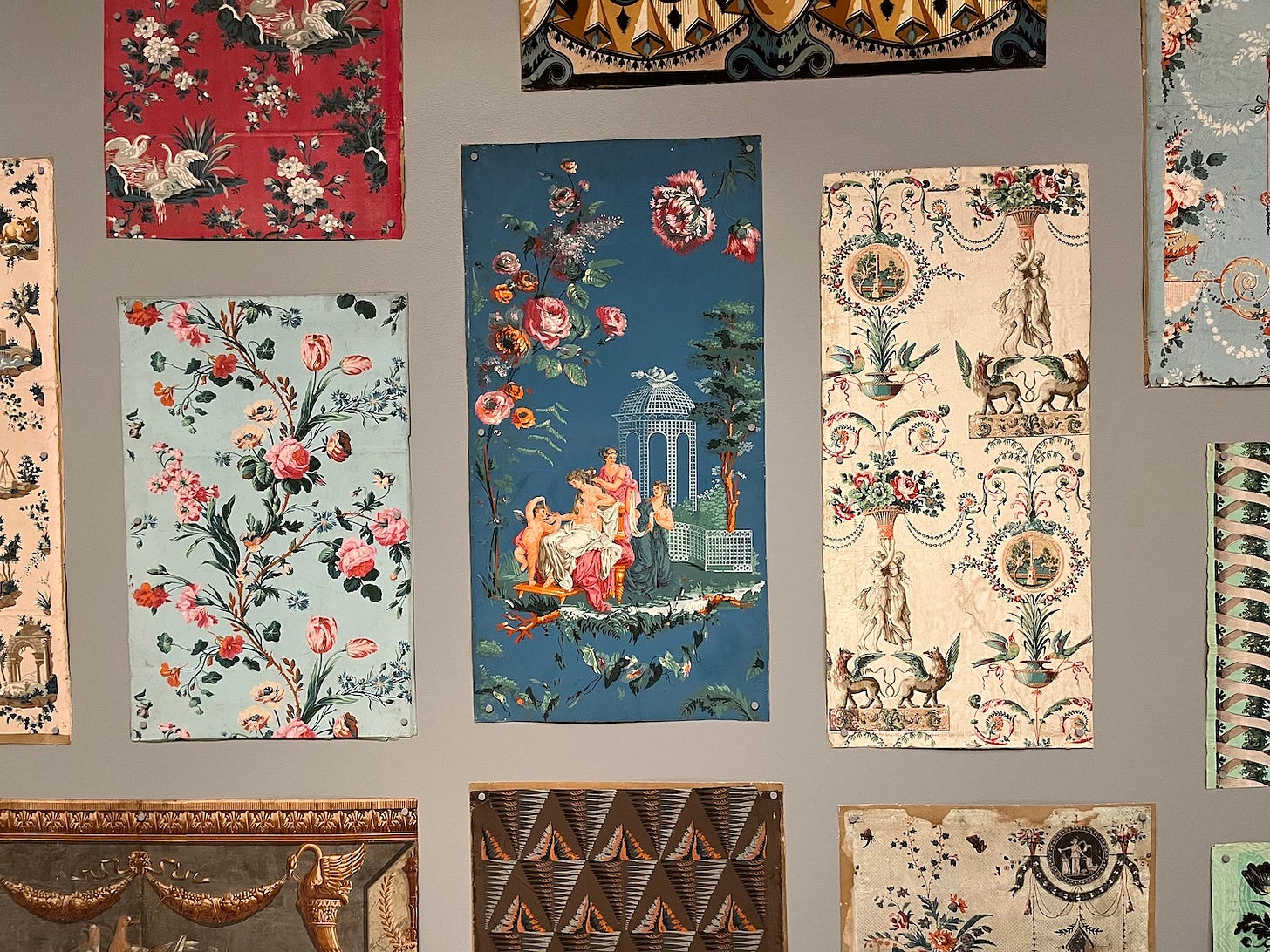

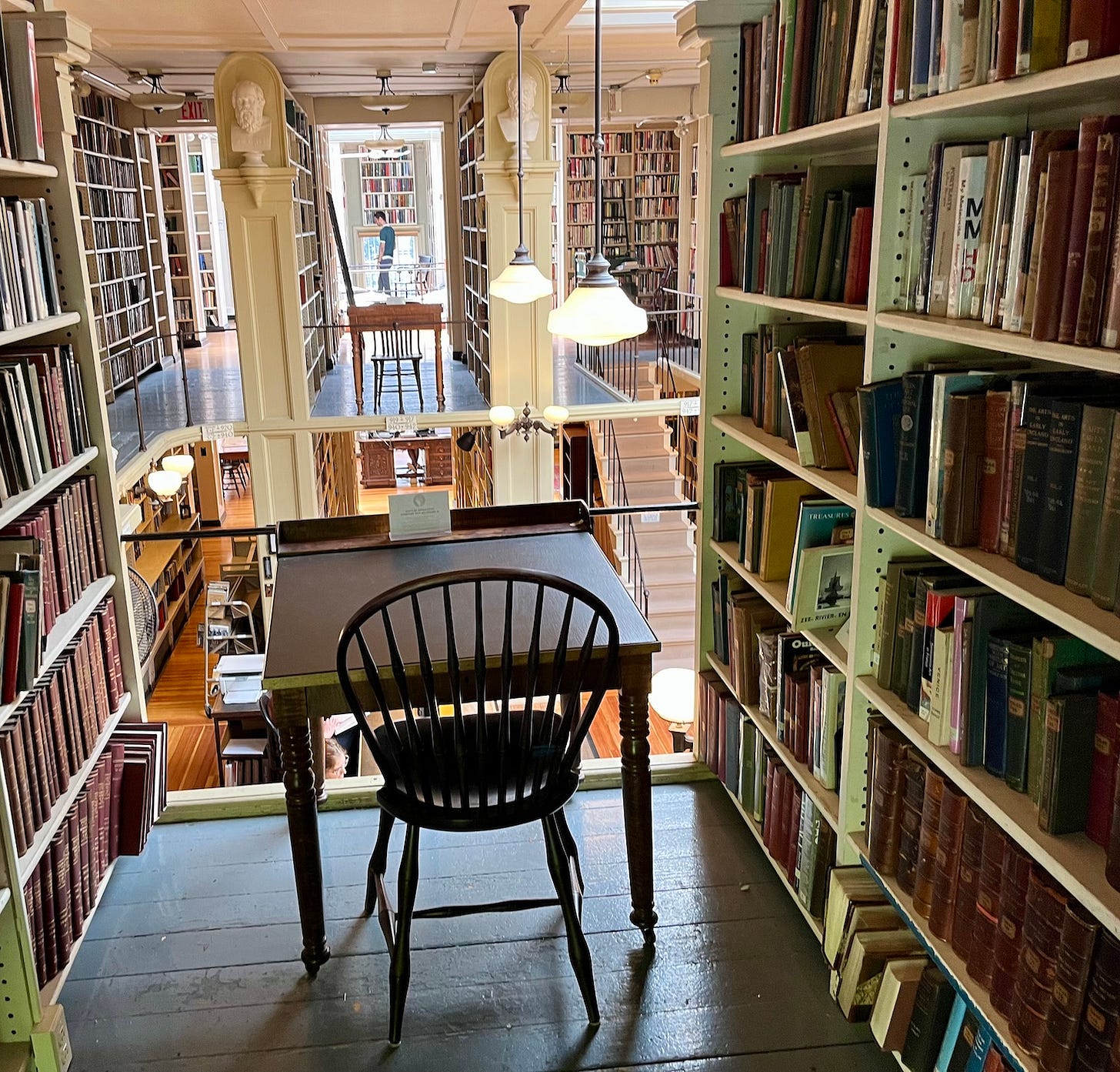
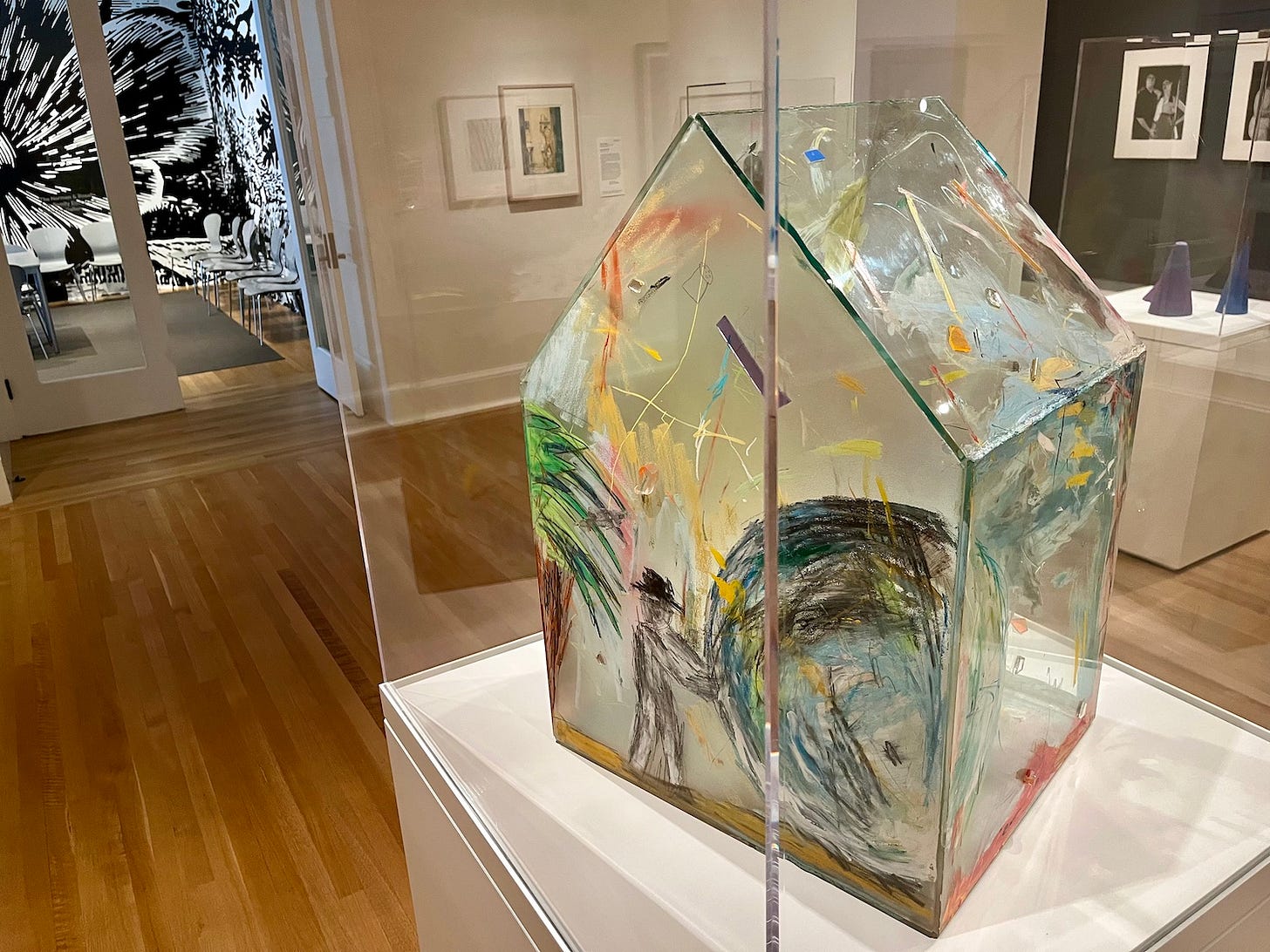
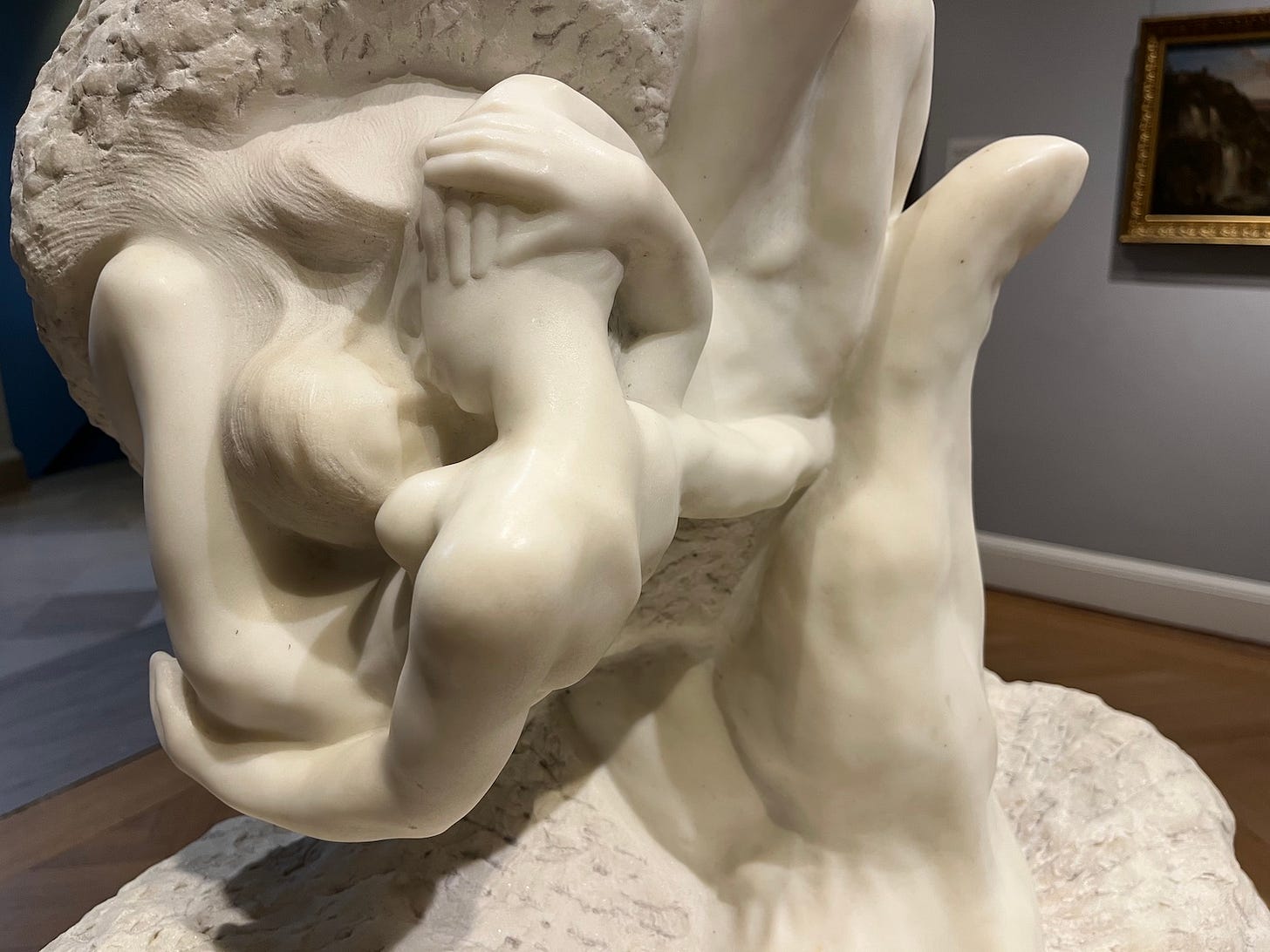
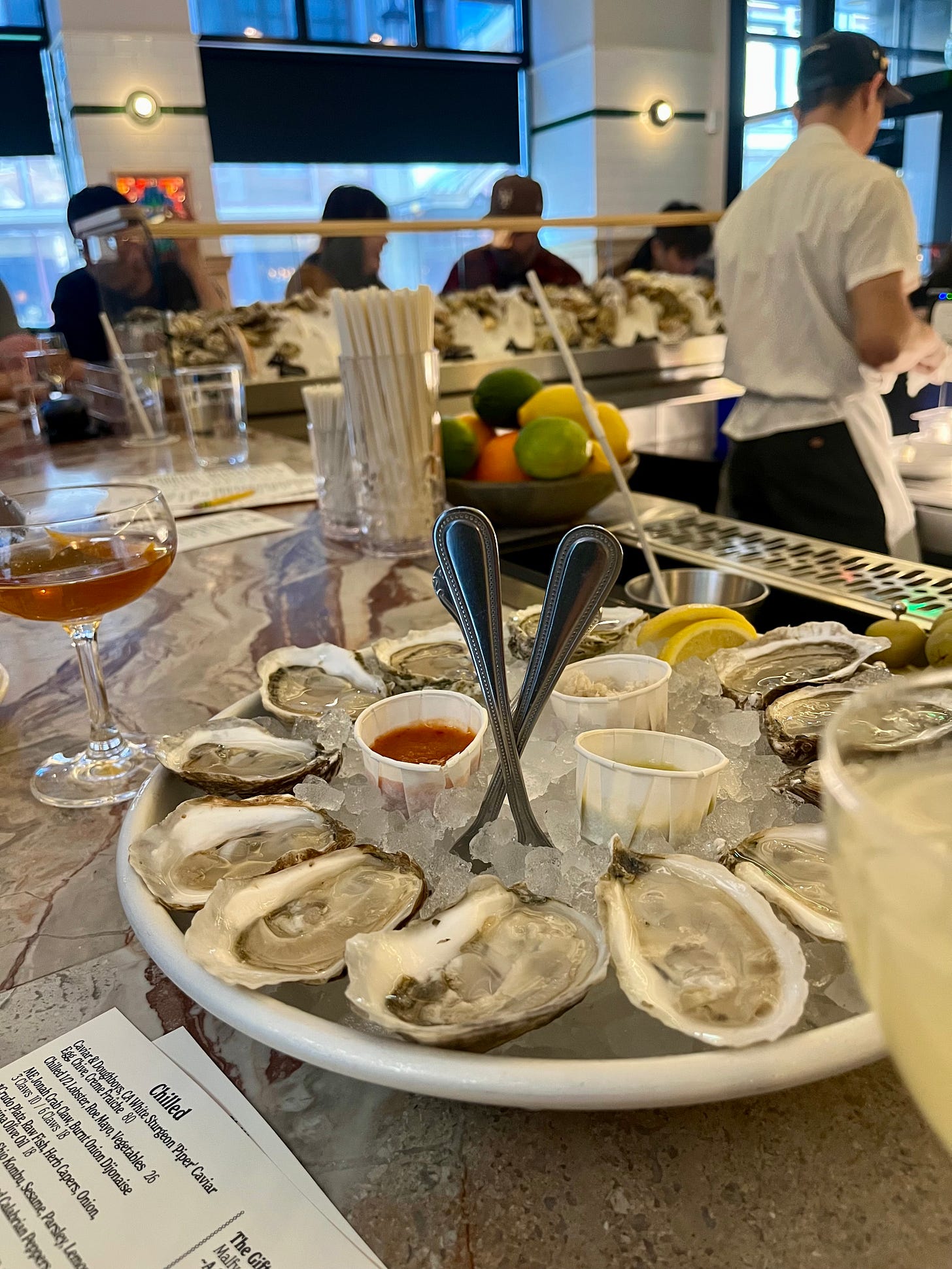
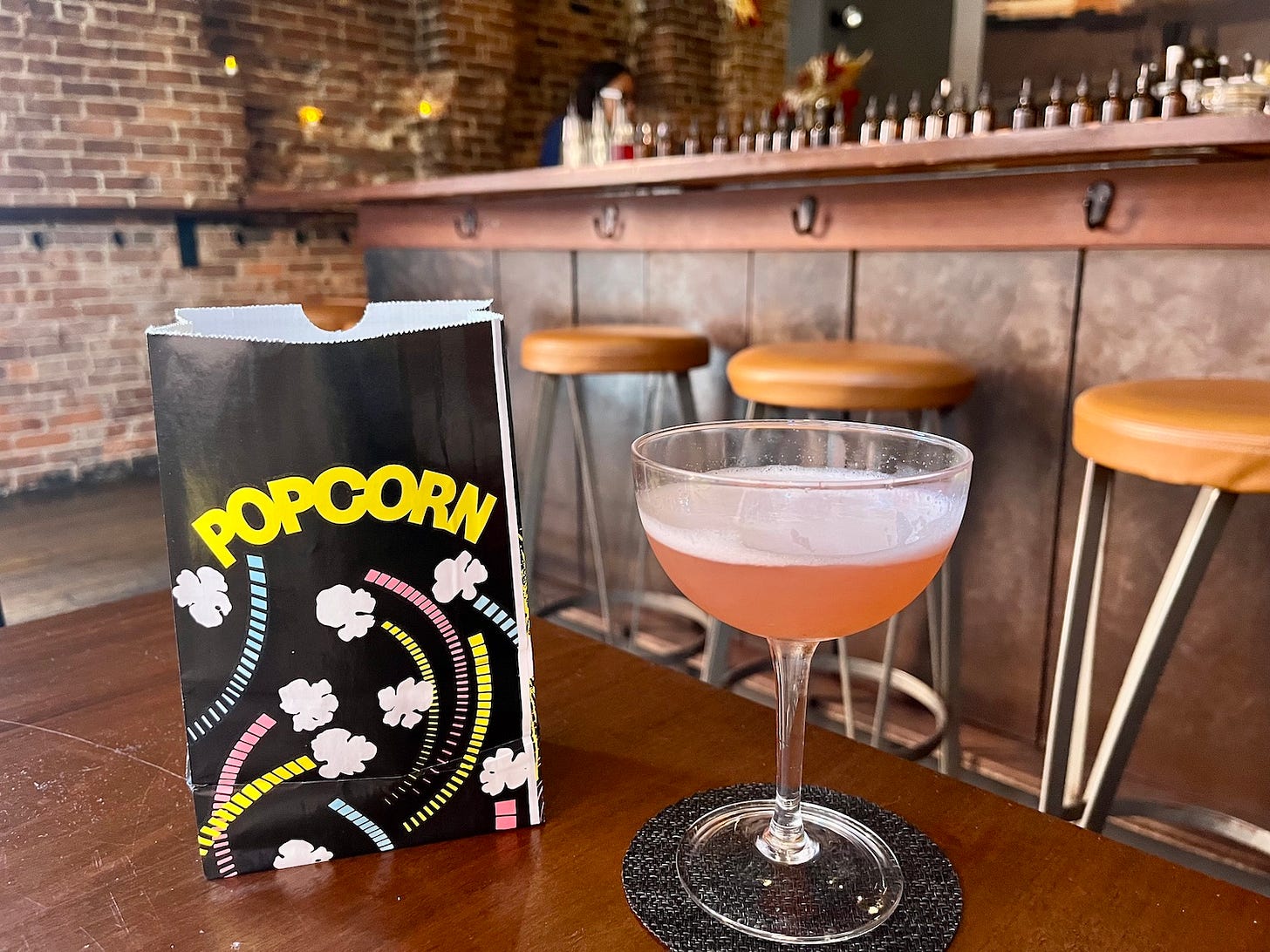

Providence is my hometown! I left after high school and I’ve never properly lived there as an adult, but my family still lives there and I usually spend a couple of months there each year. I fell head over heels for it on my last trip home, at the end of last year, and I kept wondering if it was objectively amazing or if I just love it because it’s mine. Good to know that people have been crushing on it from far away, too :) Thank you for this beautiful tribute to the best small city in the nation!